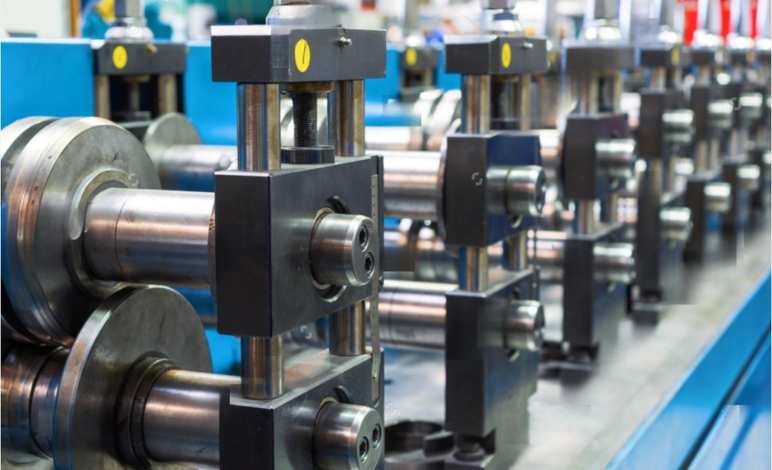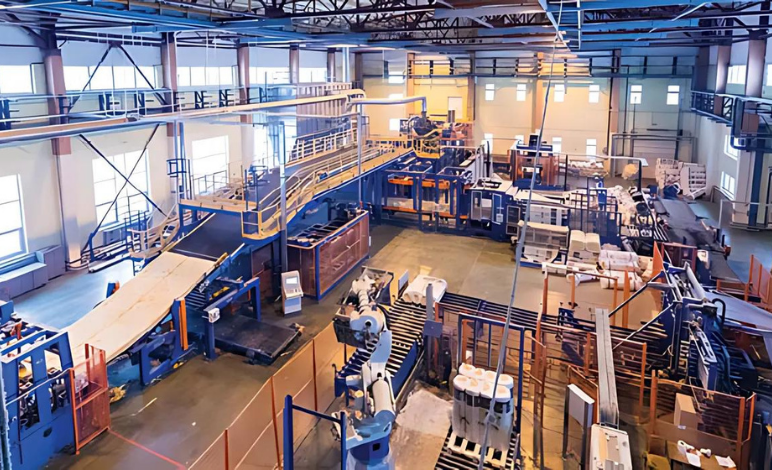
How Tube Mill Machines Improve Production Efficiency
In the world of manufacturing, efficiency is crucial. Companies are always looking for ways to improve their production processes to save time, reduce costs, and increase output. One of the key players in this area is the tube mill machine. These machines are essential for producing various types of tubes used in different industries, from construction to automotive. This blog explores how tube mill machines improve production efficiency, covering their features, benefits, and overall impact on manufacturing processes.
Understanding Tube Mill Machines
1. Definition and Purpose
A tube mill machine is a specialized piece of equipment used to manufacture tubes and pipes from metal strips or coils. The primary function of these machines is to shape flat metal sheets into tubular forms, which are then welded or joined to create strong and durable products. Tube mills are used in various applications, including plumbing, structural applications, and automotive parts.
2. Components of Tube Mill Machines
Tube mill machines consist of several key components that work together to produce high-quality tubes efficiently. Some of the main parts include roll stands, which are used to shape the metal strip into a tube by passing it through a series of rollers; welding units that secure the shape by welding the edges together; and cut-off machines that cut the finished tubes to the desired lengths for further processing or packaging.
3. Types of Tube Mills
There are different types of tube mill machines, including high-frequency welded tube mills, which use high-frequency electrical currents to weld the edges of the tube, resulting in strong joints, and spiral tube mills, which produce spiral tubes used in various applications, including heat exchangers. Understanding the components and types of tube mills is crucial to appreciate how they enhance production efficiency.
Key Features That Enhance Efficiency
High-Speed Production
One of the most significant advantages of tube mill machines is their ability to operate at high speeds. Modern tube mills can produce tubes at rates of several hundred feet per minute, significantly increasing output and allowing manufacturers to meet large orders in shorter time frames.
Automated Processes
Automation plays a vital role in enhancing the efficiency of tube mill machines. Many modern tube mills are equipped with advanced control systems that automate various processes, from shaping the metal to welding and cutting. Automation reduces the need for manual labour, which not only speeds up production but also minimizes the risk of human error.
Precision Engineering
Precision is critical in manufacturing, especially when producing tubes that must fit specific standards and applications. Tube mill machines are designed with precision engineering in mind, ensuring that each tube produced meets exact specifications. This precision results in fewer defects and rework, further contributing to production efficiency.
Reducing Material Waste
1. Optimized Cutting
Tube mill machines are designed to minimize material waste through optimized cutting techniques. The cutting process is highly efficient, ensuring that metal strips are used to their fullest potential. By producing tubes with minimal leftover material, manufacturers can significantly reduce waste and improve overall cost-effectiveness.
2. Material Recycling
In addition to optimized cutting, tube mills often incorporate recycling mechanisms that allow leftover materials to be reused in the production process. This not only reduces waste but also lowers material costs, making the production process more sustainable.
3.Improved Yield
By minimizing waste and maximizing material usage, tube mill machines contribute to improved yield. A higher yield means that manufacturers can produce more finished products from the same amount of raw material, leading to increased profitability and reduced production costs.
Conclusion
In summary, tube mill machines play a vital role in improving production efficiency in manufacturing. Their ability to operate at high speeds, automate processes, and ensure precision leads to increased output and reduced costs. Additionally, the flexibility, quality control features, and cost efficiency of tube mills make them essential tools for modern manufacturers. By investing in tube mill technology, companies can enhance their production processes, meet customer demands, and remain competitive in a rapidly changing market. If you’re considering upgrading your production processes, explore the benefits of tube mill machines. Share your experiences or ask questions in the comments below, and subscribe to our blog for more insights on manufacturing technologies and best practices.





